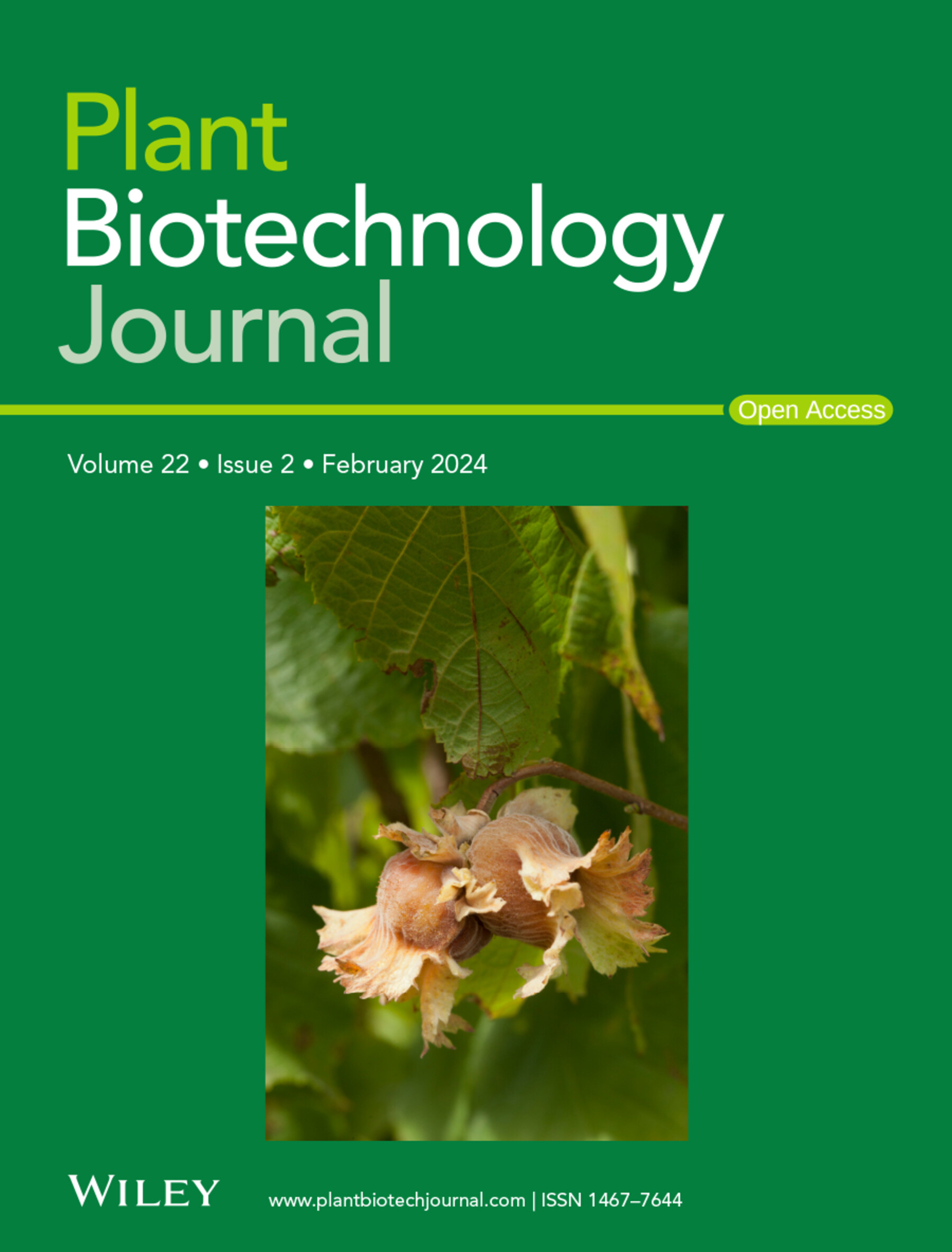Natural variation of CsUGT71A60 determines growth and cold tolerance via regulating cytokinin glycosylation in Camellia sinensis
IF 10.1
1区 生物学
Q1 BIOTECHNOLOGY & APPLIED MICROBIOLOGY
引用次数: 0
Abstract
Cold stress severely limits tea plant (Camellia sinensis) productivity, yet the molecular mechanisms underlying cold adaptation remain elusive. Here, we identified a cold-inducible glycosyltransferase, CsUGT71A60, through integrative genome-wide association studies (GWAS) and proteomic profiling. Natural variation in CsUGT71A60 was strongly associated with cold tolerance, as evidenced by linkage disequilibrium analysis of flanking SNPs. Functional characterization revealed that CsUGT71A60 specifically catalyses the glycosylation of cis-zeatin to form cis-zeatin 9-O-glucoside in vitro and in vivo. Overexpression of CsUGT71A60 in Arabidopsis enhanced cold tolerance and agronomic traits, including germination rate, tiller number and seed weight, while delaying flowering. Transient silencing of CsUGT71A60 in tea plants disrupted cis-zeatin homoeostasis, impairing antioxidant defences and osmotic regulation under cold stress. Mechanistically, the transcription factor ARR (TEA021099) directly binds to CRM elements in the CsUGT71A60 promoter, activating its expression to fine-tune cytokinin signalling. This study unveils a dual-function glycosyltransferase that orchestrates stress tolerance and developmental plasticity, offering a strategic target for breeding climate-tolerance crops without yield penalties.CsUGT71A60基因的自然变异通过调节茶树细胞分裂素糖基化来决定茶树的生长和耐寒性
冷胁迫严重限制了茶树(Camellia sinensis)的生产力,但其冷适应的分子机制尚不明确。在这里,我们通过整合全基因组关联研究(GWAS)和蛋白质组学分析鉴定了一种冷诱导型糖基转移酶CsUGT71A60。CsUGT71A60的自然变异与耐寒性密切相关,这一点得到了侧链SNPs连锁不平衡分析的证实。功能表征表明,CsUGT71A60在体外和体内特异性催化顺式玉米蛋白糖基化形成顺式玉米蛋白9- o -糖苷。CsUGT71A60基因在拟南芥中的过表达增强了耐寒性和农艺性状,包括发芽率、分蘖数和种子重量,但延迟了开花时间。茶树CsUGT71A60基因的短暂沉默破坏了顺式玉米蛋白的平衡,损害了抗氧化防御和渗透调节。在机制上,转录因子ARR (TEA021099)直接结合CsUGT71A60启动子中的CRM元件,激活其表达以微调细胞分裂素信号传导。这项研究揭示了一种双重功能的糖基转移酶,它协调了胁迫耐受性和发育可塑性,为培育无产量损失的气候耐受性作物提供了一个战略目标。
本文章由计算机程序翻译,如有差异,请以英文原文为准。
求助全文
约1分钟内获得全文
求助全文
来源期刊

Plant Biotechnology Journal
生物-生物工程与应用微生物
CiteScore
20.50
自引率
2.90%
发文量
201
审稿时长
1 months
期刊介绍:
Plant Biotechnology Journal aspires to publish original research and insightful reviews of high impact, authored by prominent researchers in applied plant science. The journal places a special emphasis on molecular plant sciences and their practical applications through plant biotechnology. Our goal is to establish a platform for showcasing significant advances in the field, encompassing curiosity-driven studies with potential applications, strategic research in plant biotechnology, scientific analysis of crucial issues for the beneficial utilization of plant sciences, and assessments of the performance of plant biotechnology products in practical applications.
 求助内容:
求助内容: 应助结果提醒方式:
应助结果提醒方式:


